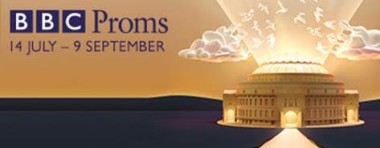
 United Kingdom 2017 BBC PROMS 51 – Sibelius, Saint-Saëns and Elgar: Javier Perianes (piano), BBC Symphony Orchestra/ Sakari Oramo (conductor), Royal Albert Hall, London, 22.8.2017. (AS)
United Kingdom 2017 BBC PROMS 51 – Sibelius, Saint-Saëns and Elgar: Javier Perianes (piano), BBC Symphony Orchestra/ Sakari Oramo (conductor), Royal Albert Hall, London, 22.8.2017. (AS)
Sibelius – Scènes historiques – Suite No.1, Op.25
Saint-Saëns – Piano Concerto No.2 in G minor, Op.22
Elgar (elab. Payne) – Symphony No.3
Not long before Elgar’s death his friend, the violinist W.H. Reed paid him a visit. Anxious about the fate of his Third Symphony sketches, the composer said to his daughter Carice and to Reed, “Don’t let anyone tinker with it…no one could understand…no one must tinker with it”. Then, “I think you had better burn it”. Reed’s response was “I don’t think it is necessary to burn it[……]. But Carice and I will remember that no one is to try and put it together”.
At this point in time, when Anthony Payne’s “elaboration” of this symphony has become almost part of the repertoire I think it is worth reminding ourselves of this conversation, especially since at two points in the concert programme there were references to this work as if it were part of an established group of three symphonies, all of them played together in a Proms season for the first time.
No opprobrium should be attached to Anthony Payne for his eventual realisation of this work, since it is clear that he didn’t originally intend to construct a completed symphony, but was taken forward bit by bit from ongoing discoveries about the nature of the sketches to the point where he could make a completion of some kind. Nor is there any suggestion that he was in any way self-seeking in this enterprise: it arose from the natural curiosity of an avid Elgarian who was eager to uncover more about his music. And copyright on the sketches would expire in 2005, at which point anybody could do the “tinkering”.
Having said all that, we should be clear that if Elgar had lived to complete his symphony himself, it would almost certainly have been a very different and a far greater work than the rather second-rate material of most of the Elgar/Payne version, which convinces only in the first movement exposition, the one part of the work that was actually completed by the composer, in short score form.
In his performance Sakari Oramo’s enthusiasm for the work as it exists was evident. He gave a clear, expressive account of it, with apparently good choice of tempi, and if some of the music doesn’t quite sound like Elgar (unless the composer was really taking a radical new path forward, which seems unlikely), Oramo shaped it all with sympathy and skill.
The music of Sibelius is of course in the blood of this Finnish conductor. It was surprising to read that this was only the second performance of the Scènes historiques First Suite at the Proms, since it is high-class Sibelius in his nationalistic vein, and the third of the three movements, ‘Festivo’, often played on its own, is a delight, especially in such an affectionate performance as that given by Oramo.
Saint-Saëns’s most popular piano concerto followed the Sibelius to conclude the concert’s first half. Javier Perianes’s performance captured the almost mock serious, pompous nature of the first movement unerringly, his playing being brilliant but also responsive to the more lyrical elements of the music. His lovely tone quality and refined, pearly delivery were impressive, though piano recordings by the composer himself and French pianists of his time and a little later admittedly display a more clear-cut, direct approach to the master’s music. The Scherzo was scintillatingly played by Perianes, again with a certain refinement but also with a touch of tongue-in-cheek playfulness. The concluding Presto was a virtuosic but controlled romp of a performance.
Alan Sanders
For more about the BBC Proms click here.
